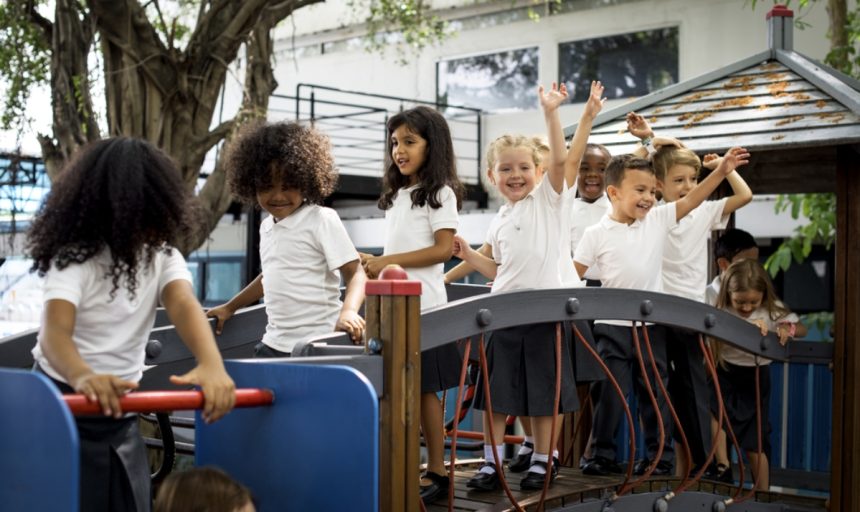An international study has revealed an over-reliance on ‘manufactured play’ in schools may be impacting children’s mental health.
Titled Child’s Play: Examining the Association Between Time Spent Playing and Child Mental Health, the study found children involved in ‘adventurous play’ showed resilience against mental health issues, such as anxiety and stress.
Researchers from the University of Exeter surveyed nearly 2,500 parents of children aged five-11 years old, with parents asked how often their children engaged in play that was “thrilling and exciting”, as well as their general mental health and mood, both before and after COVID-19 lockdowns.
The results found children who spent more time playing outside had fewer “internalising problems” (such as anxiety and depression) and were more positive during the quarantine.
Lead researcher and Professor of Child Psychology at the University of Exeter, Helen Dodd, said that the findings highlighted how we could help protect our children’s mental health.
“We’re more concerned than ever about children’s mental health,” she said when releasing the report earlier this year.
“Our findings highlight that we might be able to help protect children’s mental health by ensuring they have plentiful opportunities for adventurous play.
“This is really positive because play is free, instinctive and rewarding for children, available to everyone, and doesn’t require special skills.”
Professor Dodd also put out an urgent call for communities to invest in building and protecting “well-designed parks and playgrounds” to support the mental health of our children.
Monuments to misunderstanding in our own backyard
Traditionally, Australia’s school playgrounds have not emphasised adventurous play. Instead, focusing more on very traditional swing and slide play equipment. As a nation, we have focused on our collective passion for ball games and organised sports.
But a 2021 research paper, Australian Primary School Playgrounds: Monuments to Misunderstanding?, reveals how this over-emphasis on rigid, manufactured play may hinder children from learning necessary play skills.
“As in many OECD countries, and also in Australia, impacts on our modern society have significantly restricted children’s ability to access free, independent play, most significantly outdoor play adventures,” the paper states.
“Play experiences that many of us took for granted when we were young are now being radically diminished, or at risk of disappearing entirely for children today.”
Recalling the relaxed attitude around outdoor play of the 1980s and 1990s, authors Karen Nicholls and Marylou Verberne say this steady decline in play is a result of an “increasingly risk-averse Australia”, growing screen time and a lack of physical education for teachers.
“We are seeing the emergence of a 21st-century phenomenon of ‘play deficit disorder’ on Australian primary school playgrounds, where children are presenting at school with inadequate play skills to navigate the school playground successfully for themselves,” the paper reads.
“Unsurprisingly, some schools are finding playtimes increasingly problematic for everybody, students and teachers alike.
“Australia does not have an identifiable playwork sector and, typically, pre-service training for teachers undertaking a Bachelor of Education does not include any specific instruction in providing a rich play experience for children during their playtimes.”
Both Ms Verberne and Ms Nicholls say it’s vital schools provide these play opportunities for children to “stretch their legs” and develop much-needed physical and social skills.
“Through playground experiences, both positive and negative, important social skills, character and resilience are formed, which will see children through their adolescent years and on into adulthood,” the paper reads.
“With so much changing in childhood today, the school playground is one place where children are guaranteed (or should be guaranteed) a certain amount of time daily to play freely outdoors with their friends.
“As a result, Australian schools are increasingly beginning to understand the key role and importance of the non-directed time at school for kids and teachers alike.
“This often overlooked part of the school day is now starting to be recognised as having an impact on children’s development and their overall well-being and engagement in school and learning.”








